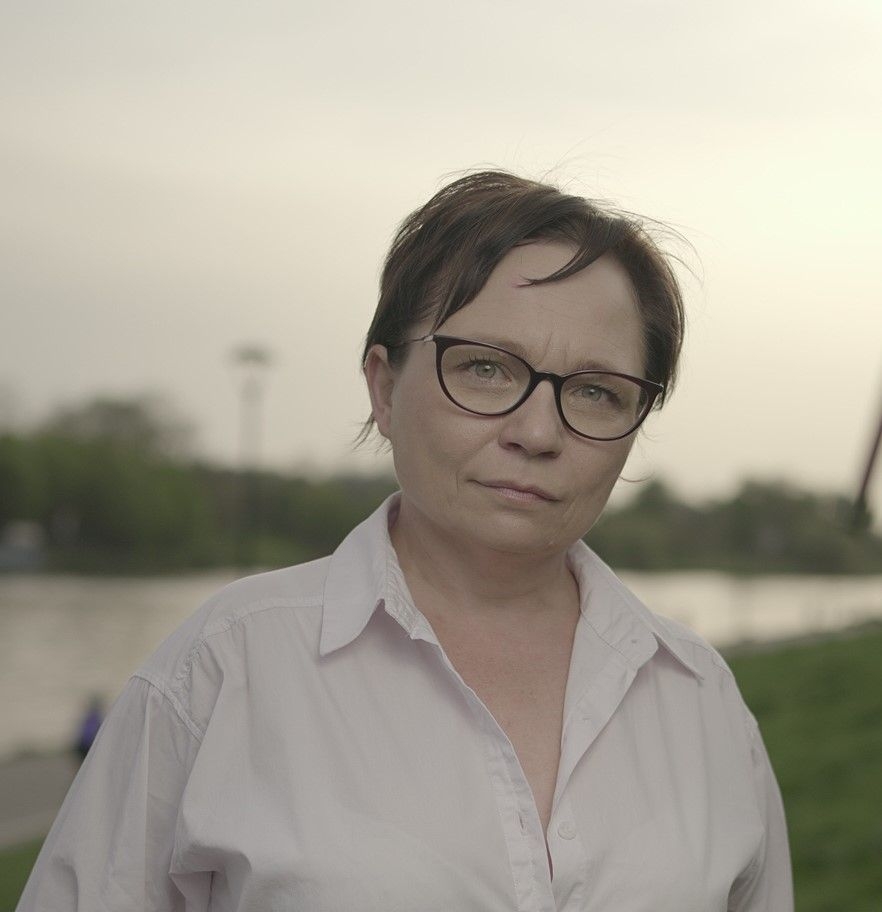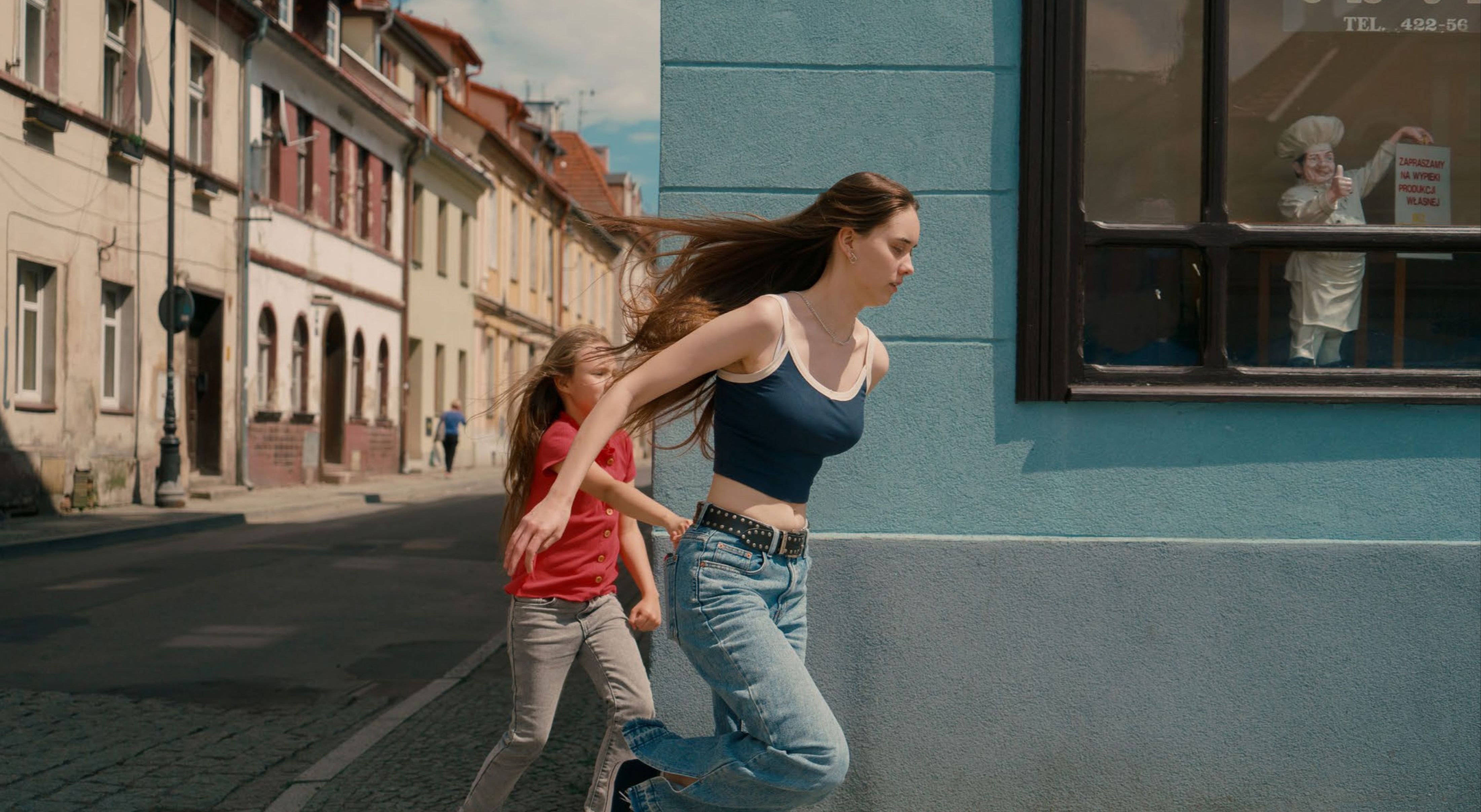Baltic Event Co-Production Market
LITTLE MARY, ALWAYS A VIRGIN
16-year-old Marysia tries to sell her virginity online. She arranges meetings with various men, thinking she can control the situation. However, she's not able to predict everything – most importantly, her own emotions.
Marysia lives in a village with her mum and half-sister Julka. After posting photos online, she receives messages from men and considers selling her virginity. Her bond with Mateusz, Julka's uncle and her childhood friend, becomes complicated. Though Mateusz has a pregnant girlfriend, Marysia feels close to him. She meets several men and chooses one, but flees when he, a doctor, wants to examine her. Ultimately, she decides to have her first time with Mateusz. Their intimacy reveals a deep connection, and for Marysia, it's the start of making her own – wise or foolish – choices.
Main country of production
Poland
Director's note
Marysia is rebellious and independent. She believes that she's able to choose her own path and get where she wants without paying any price. She doesn't want to live like her mother, who, in her opinion, wasted her life by passively waiting for whatever fate would bring, and clinging to a succession of different men.
The film will be a coming-of-age story, depicting the life of the protagonist at a pivotal moment of entering adulthood and losing her virginity.
The relationship between Marysia and her younger sister is also crucial to me. Marysia can see herself in her younger sister like in a mirror; she's both annoyed by her childlike wonder, and simultaneously envious of her courage to speak the truth and expose herself to ridicule.
It is important to me how these three characters - mother and two daughters - perceive their own womanhood. Through them, I want to show how the faces of femininity change from generation to generation.
Producer's note
Anna Jadowska's work has been appreciated both in Poland and abroad. Her films are ambitious and controversial. They have received recognition at international film festivals, including the Tribeca Film Festival ('Woman on the Roof') and the Stockholm Film Festival ('Wild Roses' – the Stockholm Impact Award).
I value Anna Jadowska's portrayal of women. Both 'Wild Roses' and 'Woman on the Roof' focus on female protagonists in difficult life situations. This serves as a starting point to outline an intimate landscape of women's emotions and struggles.
'Little Mary, Always a Virgin' will refer to her previous 'Wild Roses.' This time Jadowska shifts the focus to the younger generation represented by Marysia, a young girl on the brink of adulthood. Jadowska presents her bond with her mother and younger sister. Marysia is already different from her mother, though. She can fight for herself and her right to explore the world and experience life. There are still not enough of such female protagonists in Polish and European cinema. Our benchmarks for our project are, among others, Andrea Arnold's 'Fish Tank,' 'American Honey,' and the Dardenne brothers' 'Rosetta.'
We'd like to place the editing and sound post-production in France. In Les Arcs, we would also like to find a sales agent for the film. Considering the strength of 'Little Mary, Always a Virgin' script and Jadowska's previous works, the film has a chance to premiere at a class A film festival (Cannes, Venice, Berlinale).
'Little Mary, Always a Virgin' has received Polish Film Institute development support. Since the DOP, Ita Zbroniec-Zajt, is based in Malmö, we got on board the Swedish co-producer – Eliza Jones from Grand Slam. Anna Jadowska also received the Stockholm Impact Award, which guarantees the distribution of 'Little Mary' in Sweden. We are in negotiations with Canal+ Poland. Considering the strength of 'Little Mary, Always a Virgin''s script and Jadowska's previous works, the film has a chance to premiere at a Class A film festival (Cannes, Venice, Berlinale).
Subjects:
coming of age, sexuality, interpersonal relationships, familial relationships, youth, child parent relationships
Anna Jadowska is a Polish director. Her most recent film, “Woman on the Roof,” premiered at the Tribeca Film Festival in the International Narrative Competition. Anna co-directed “Erotica 2022,” the first original Polish film for Netflix. Her previous film “Wild Roses” premiered in 2017 at the 17th T-Mobile New Horizons International Film Festival in Wrocław, received the Stockholm Impact Award at the Stockholm International Film Festival in 2017, and won the Main Competition at FilmFestival Cottbus. In 2018, Anna received the Krzysztof Krauze Award, granted by the Directors’ Guild of Poland. Anna is also a successful TV series director. She co-directed “Open Your Eyes” for Polish Netflix and “Ultraviolet” for the AXN network. She continues to work with major Polish TV broadcasters and international streaming platforms. Her earlier work includes the feature film “Touch Me” (2003), which received the Grand Prize at the Independent Film Competition in Gdynia and was presented during the International Film Forum at Berlinale. Shortly after, her short film “Corridor” (2004) was presented at Cannes in Europe in Shorts X: Eastern Europe.

Graduated from Łódź Film School in Film Production. Former programmer at New Horizons International Film Festival. Her short film 'Fragments' premiered at Cannes Quinzaine in 2014. Produced two features: 'Simple Things' (New Horizons IFF competition) and 'Everyone Has a Summer' (Gdynia FF premiere, multiple Polish awards). EAVE Producers Workshop alumna (2023). Member of Polish Producers Guild.

Anna Zajączkowska has been working in film production since 2005, cultivating a tremendous amount of international experience as a line producer and executive producer, working on productions from the United States, India, Germany, Bosnia and Herzegovina, the Netherlands, Croatia, and Ukraine. These films have been widely received and awarded at film festivals across the world. In April 2023, she co-founded Mozaika Films with Magdalena Sztorc.
Mozaika Films was founded in 2023 by Magdalena Sztorc and Anna Zajączkowska. It is an international co-production company focused on diverse storytelling and supporting emerging voices.

